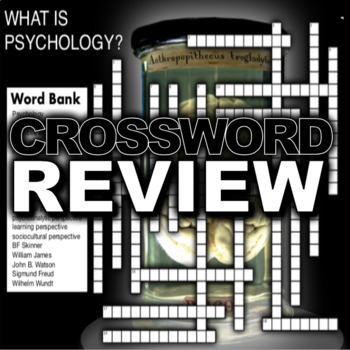Crossword puzzles have long been a source of amusement and challenge for language enthusiasts and casual solvers alike. Among the various forms of crossword puzzles, mini crosswords have gained popularity due to their compact size and quick-solving nature. This article delves into the psychology behind the clues used in mini crosswords, exploring how they evoke cognitive processes, elicit emotional responses, and enhance linguistic skills.
Understanding Mini Crosswords

Before diving into the psychological aspects of mini crossword clues, it is essential to define what mini crosswords are. Typically featuring a grid size of 5×5 or 7×7, mini crosswords are designed to be solved within a short time frame, often just a few minutes. Their clues are usually more straightforward than those found in standard crossword puzzles, catering to a broad audience. This accessibility makes them an excellent tool for both entertainment and cognitive stimulation.
Psychological Engagement in Problem-Solving
One of the primary psychological elements at play in solving mini crossword clues is the problem-solving process. When faced with a clue, solvers engage in a series of cognitive functions:
- Memory Retrieval: Solvers must tap into their long-term memory to recall relevant information or vocabulary that matches the clue.
- Pattern Recognition: Recognizing patterns in language and structure is crucial for deducing the answer from letters already filled in.
- Logical Reasoning: Solvers often need to employ deductive reasoning to eliminate incorrect answers and arrive at the correct one.
Research shows that engaging in such cognitive tasks can enhance brain function. A study published in the journal “Cognition” found that solving puzzles can improve memory and cognitive flexibility, making mini crosswords a beneficial activity for mental agility.
The Nature of Clues: Wordplay and Double Meanings

Mini crossword clues often employ clever wordplay and double meanings, which can be both entertaining and challenging. This aspect appeals to the solver’s linguistic creativity and enhances their engagement. Here’s how:
- Homophones: Words that sound the same but have different meanings can create playful confusion. For example, a clue like “A sound investment?” could lead to the answer “bass,” referring both to a type of fish and a musical term.
- Puns: Wordplay that involves a humorous twist or play on words can make clues more engaging. For instance, a clue like “Brewed awakening?” could lead to the answer “tea,” playing on the idea of a “rude awakening.”
- Abbreviations and Acronyms: Many clues use common abbreviations or acronyms, requiring solvers to think outside the box. For instance, “CEO’s concern?” might refer to “pay,” invoking thoughts about salary and corporate finance.
The use of such linguistic techniques not only makes solving a mini crossword enjoyable but also stimulates creative thinking and problem-solving skills.
The Role of Emotional Engagement

The emotional aspect of solving mini crossword clues cannot be overlooked. Engaging with puzzles often elicits feelings of satisfaction and joy, particularly when a tough clue is cracked. Here are several ways that emotional engagement manifests:
- Accomplishment: Successfully solving a mini crossword can provide a sense of achievement, boosting self-esteem.
- Frustration and Relief: The struggle to find an answer can lead to moments of frustration, but the eventual “aha!” moment offers relief and joy.
- Social Connection: Many people enjoy discussing clues and solutions with friends or family, fostering social bonds through shared experiences.
A study conducted by the University of Oxford found that engaging in puzzles, including crosswords, can significantly improve mood and reduce stress levels. This emotional uplift is a crucial aspect of why many individuals turn to mini crosswords as a form of leisure.
Cognitive Benefits of Solving Mini Crosswords
Beyond entertainment, the regular practice of solving mini crosswords comes with a plethora of cognitive benefits. These benefits include:
- Enhanced Vocabulary: Regularly engaging with clues introduces solvers to new words and phrases, thereby expanding their vocabulary.
- Improved Spelling: Mini crosswords encourage solvers to think about word structure and spelling, reinforcing correct language usage.
- Increased Cognitive Flexibility: The need to switch between different types of clues fosters mental agility, enhancing overall cognitive performance.
According to a study published in the journal “Neuropsychology,” older adults who regularly engage in cognitive activities, including crossword puzzles, exhibit a slower rate of cognitive decline compared to those who do not participate in such activities.
Case Study: The Popularity of Mini Crosswords
To understand the impact of mini crosswords, consider their rising popularity in various media. A notable case study is the New York Times Mini Crossword, which has millions of solvers daily. This puzzle has become a staple for many, offering a quick yet satisfying mental challenge. According to a survey conducted by the New York Times, over 70% of mini crossword solvers reported that they feel more accomplished after completing the puzzle, illustrating the emotional and cognitive benefits associated with the activity.
Conclusion: The Multifaceted Appeal of Mini Crossword Clues

The psychology behind mini crossword clues is a fascinating intersection of cognitive processes, emotional engagement, and linguistic creativity. From the problem-solving required to decipher clues to the joy of cracking a tough answer, mini crosswords offer a unique blend of challenges that stimulate the mind and uplift the spirit.
In summary, the engaging nature of mini crossword clues not only enhances vocabulary and cognitive abilities but also fosters emotional connections and a sense of accomplishment. As this form of puzzle continues to grow in popularity, its psychological benefits will likely resonate with an even broader audience, making it a timeless pastime for language lovers and casual solvers alike.